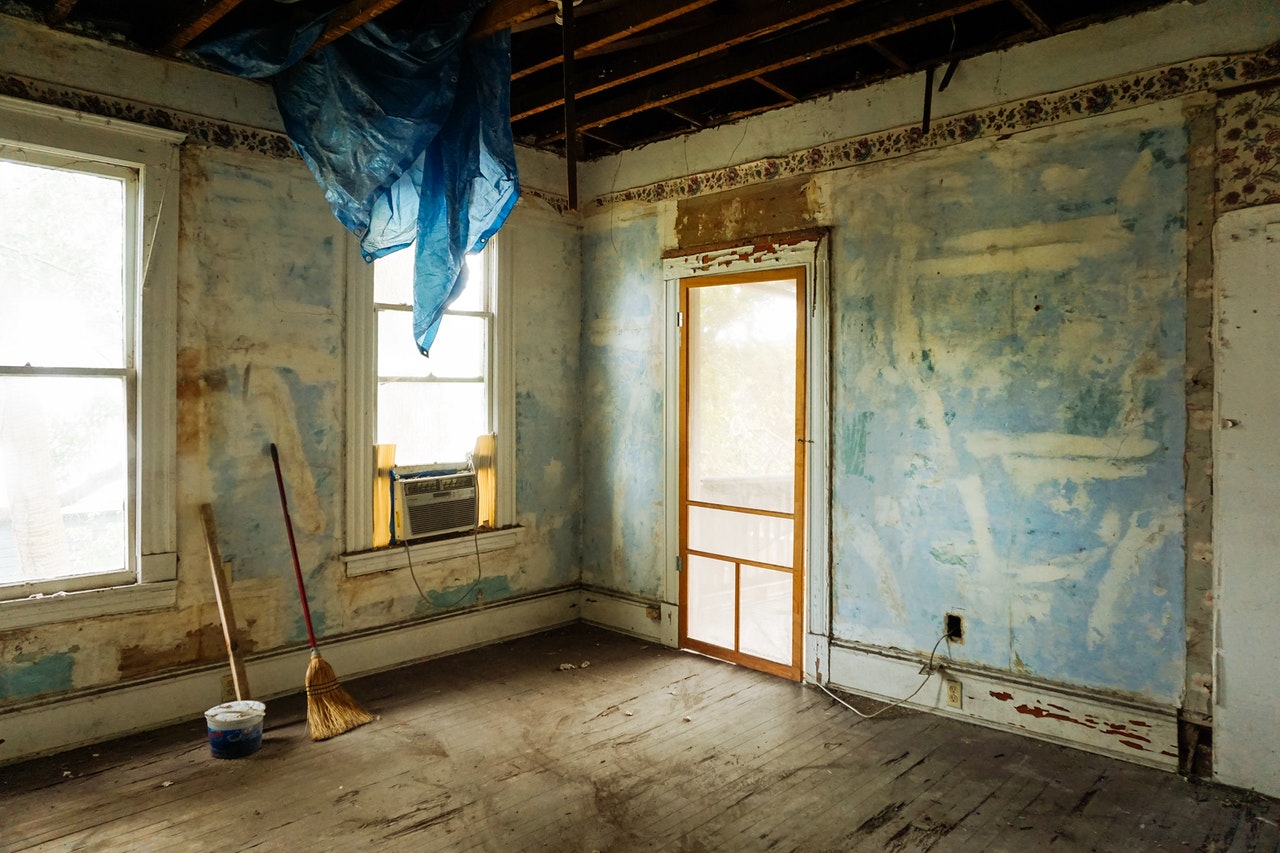- Compare agents
- Online valuation
- Explore my area
- Home toolkit
- News & guides


- Estate agents by area
- Sold house prices by area
- Estate Agent ValuationRequest an in-person valuation with an agent to discover your property's true market value.
- Online Valuation ToolGet a free instant estimate of your home's value.
- EPC CheckerFind out if your home has a valid Energy Performance Certificate.
- Listing MonitorAlready on the market? See how your online property advert is performing.
- Selling guides
- Estate agent guides
- Mortgage advice
- Conveyancing guides
- Property news See All News & Guides

Agent shortlist

HouseWorth
- Bought a home with undisclosed problems? What to do
Conveyancing help and guides28 April 2021
Bought a home with undisclosed problems? What to do
Daniel Strieff
Writer

Table of contents
- 1. The buyer’s responsibilities during conveyancing
- 2. The risk of skipping the survey
- 3. The seller’s responsibility during conveyancing
- 4. What should you do if you discover a problem with the property before completion?
- 5. Can you sue the seller over an undisclosed problem?
- 6. Complaining to the estate agent about an undisclosed problem
- 7. Final points
It’s something no new homeowner wants to encounter: they’ve bought a new home, only to discover problems with the house that weren’t disclosed prior to the sale.
What happens now? Who’s responsible? And can the buyer seek compensation from the seller?
This article will cover what you need to know about undisclosed problems with your new home, from what to look out for before you complete your purchase, to what happens when you discover a fault, and finally to when -- and how -- to seek compensation.
The buyer’s responsibilities during conveyancing
During the conveyancing stage -- spanning from when the offer is accepted to when the buyer receives the keys -- it’s crucial for the buyer to uncover any problems and ensure the house is up to their standard.
Normally that’s achieved through the commissioning of a survey, which buyers typically arrange for after their offer has been accepted but before all legal details have been negotiated and contracts exchanged.
Surveying involves hiring a chartered surveyor to carefully inspect the property for any possible problems. Surveys are not technically required but are strongly recommended because they can offer the buyer some peace of mind. By having an independent professional evaluate the property for problems, buyers can feel assured their new house won’t give them any unwelcome surprises. Plus, buyers can make claims against surveyors who fail to identify defects present when the survey was undertaken.
Read more on our blog: Can I do my own conveyancing?
Common issues that surveyors search for include:
- Structural risk such as subsidence (when the ground beneath the property sinks)
- Potential health and safety issues, such as asbestos or radon gas
- Damp, dry rot or pest infestations such as woodworm or beetles
- Electrical issues
- Faults with drains or roofing
- Poor insulation
Although a surveyor may make note of smaller issues, such as a dripping shower head or an ill-fitting cupboard door, they aren’t usually worth pursuing with the seller because they don’t negatively affect the value of the house.
Your licensed conveyancer (or conveyancing solicitor) should help you navigate this process. It’s their job to help you through the legal and financial implications of your survey.
For more information on how to find the best conveyancer in your area, check out our guide to conveyancing fees.
The risk of skipping the survey
Buying a new home is expensive, so it may be tempting to skip the homebuyers’ survey. As many as four of five homebuyers have said they didn’t have a survey done, according to news reports, but many have later regretted it.
It’s very risky not to have a survey done and we strongly recommend that you arrange for one. Here’s why.
The lack of a thorough survey for defects means that a buyer is less likely to discover problems that aren’t necessarily visible to the untrained eye, such as dry rot or subsidence. These are costly problems to address. A few hundred pounds spent now to locate a potential problem could save you thousands (or tens of thousands) in future repair costs.
While a seller has responsibilities regarding basic truthfulness, a thorough survey improves the buyer’s position both in negotiating the sale price and if an unreported problem appears after the sale is completed. A negative survey report, for instance, can help a buyer negotiate a lower price with the seller. Surveys are also official documents and as such their findings can be used in legal proceedings if the buyer ends up seeking compensation from the seller for undisclosed problems.
Note: a survey is different from a mortgage valuation, which your lender (if you’re buying with a mortgage) will require. Whereas a property survey is intended to search for defects and provide expert commentary on the house, the mortgage valuation is meant to assess how much a property is worth. As a result, even if you’re a cash buyer, the property survey will provide a much deeper inspection of the house.
This advice on surveys pertains to home buying in England, Northern Ireland and Wales. In Scotland, by contrast, surveys are the responsibility of the seller.
The seller’s responsibility during conveyancing
While there’s a common notion that the rule of caveat emptor -- ‘buyer beware’ -- reigns supreme in the UK residential property market, in reality both sides of a house sale bear some responsibilities.
On the seller’s side, they’re legally restricted from providing any misleading information to the buyer. They also must answer truthfully any of the buyer’s queries.
Sellers must also disclose vital information that could affect the value of the house on the Seller’s Property Information Form (‘TA6’ is its technical name) during the conveyancing process. While completing the Seller’s Property Information Form isn’t mandatory, it’s in the best interests of both buyer and seller to have all questions fully and honestly answered before the sale.
Examples of information that could be listed on the Seller’s Property Information Form include:
- Property boundaries
- Details of any disputes with neighbours
- Notices of development or planning permission of nearby properties or public works, such as a major roadway
- Details of any work or alterations evercompleted on the property
- Buildings insurance information
- Car parking rights
If the seller is not truthful about the property, they risk a potential claim against them for misrepresentation.
What should you do if you discover a problem with the property before completion?
As a buyer, if your searches uncover a problem that could affect the value of the house prior to the completion of the sale, you have three basic options.
You can:
- withdraw completely from the sale
- demand the seller cut the price in light of the problem
- demand that the seller pays to fix the problem
Of course, either party can still walk away without penalty until the contracts are exchanged. That’s important for the buyer to remember if the seller proves unwilling or unable to resolve major problems.
Buyers may feel frustrated if they’ve lost time on an ultimately failed translation, but that’s much better than being stuck with a massive investment in a deeply flawed property.
Can you sue the seller over an undisclosed problem?
The discovery of an undisclosed problem with a new house is not just stressful, but could have a significant detrimental impact on the value of the house. In such cases, a buyer could turn to the courts to seek compensation.
For instance, a new homeowner could sue after buying a house if they feel the seller misrepresented, wilfully or not, the condition of the house during the sales process.
Most UK property contracts include the Law Society’s Standard Conditions of Sale, which provide that a buyer can claim damages if there’s a material difference between the description or value of a property and its contents as they are represented versus how they actually are.
To make a claim against the seller, the buyer would need to prove:
- the issue existed at the exchange of contracts stage
- the defect is genuine and not merely a matter of opinion
- the problem negatively affects the value of the house
If the buyer’s claim is successful, the amount awarded will likely be roughly the difference between the amount paid for the house and what the property is actually worth in light of the damages. This is known as ‘diminution of value’.
In other cases, the buyer’s complaint could be with the conveyancer rather than the seller -- for instance, if an issue with the property was missed or misinterpreted.
In such cases, the buyer could launch a professional negligence claim against the conveyancer.
Buyers usually have a six-year window in which to bring the claim. In some circumstances, the timeframe may be three years from the date the buyer becomes aware of the problem.
Regardless, we recommend you seek independent legal advice if you think your seller may have misled you.
Complaining to the estate agent about an undisclosed problem
Estate agents also have legal obligations to buyers. If you feel that the estate agent was negligent or deceptive about undisclosed problems with your new house then it’s within your rights to seek redress.
You must first contact the estate agent directly to give them a chance to respond. But if your complaint still isn’t addressed, ask them which of the following two government schemes they belong to:
Estate agents by law must belong to one of the schemes, which are meant to help people lodge complaints without going directly to the courts if they feel they’ve been let down during a property transaction.
Final points
In sum, buyers should be extremely thorough in their searches during conveyancing to ensure that no unpleasant surprises crop up after they’ve completed the sale and taken possession of the property.
While sellers have a legal responsibility to disclose any issues with the property, ultimately the burden of addressing the problem will fall most heavily on the new homeowner.
The law in the UK is on the buyer’s side in the event of an undisclosed problem, but court proceedings tend to be lengthy, complex and expensive. The preferable outcome would be to never get to that point at all.
Thinking about
selling your home?
Picking the right estate agent is vital for a successful sale. GetAgent makes choosing simple. Discover the best performing agents in your area.
- Free
- Data-driven
- No obligation
Thinking about
selling your home?
Picking the right estate agent is vital for a successful sale. GetAgent makes choosing simple. Discover the best performing agents in your area.
- Free
- Data-driven
- No obligation

Compare estate agents
It takes 2 minutes.
Our company
Get in touch
020 3608 6556
Our lines are closed
We are a company registered in England & Wales, company number 09428979.
Copyright © 2026 GetAgent Limited










